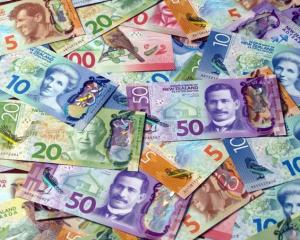
The meetings could have an impact on interest rates, currencies and sharemarkets.
The United States Federal Reserve meets today and tomorrow and the results will be released at 6am on Thursday (NZ time) and followed by a press statement by Fed chairman Jerome Powell.
``Eyes will be firmly on the Fed and markets are expecting the US policy rate to be raised another quarter of a percent. This would take the Fed's fund rate to a target rate of 1.75% to 2%.''
A rise this week would put the Fed's fund rate above the New Zealand official cash rate of 1.75% for the first time in 18 years, Mr Timms said.
At the same time as an interest rate decision, the Fed would provide an updated summary of economic forecasts, giving some clues as to how it saw the US economy progressing and how aggressively it intended to keep increasing interest rates.
The Fed could be ``reasonably expected'' to tweak its growth and inflation forecasts higher. A bigger question was what happened if it also suggested a more aggressive path for interest rate rises, he said.
The US dollar might see further support, which could mean the New Zealand dollar slipping in value against the greenback.
``While this will mean we face higher costs for some imports, it will provide added support to our export sector.''
The minutes of the last Fed meeting suggested a willingness to let inflation run above target for a period. There was much riding on how the Fed outlined its strategy, Mr Timms said.
There was every chance the outcome of the European Central Bank meeting on Thursday evening would upstage the Fed.
A rate rise in the US was a relatively predictable outcome but the ECB could surprise the market with comments on how and when it would wind down its 30billion ($NZ50.3billion) monthly asset purchase programme.
Bond yields increased last week, as did the value of the euro currency, after ECB chief economist Peter Praet said underlying strength in the economy was making the ECB more confident inflation would move towards its target of slightly below 2%, Mr Timms said.












